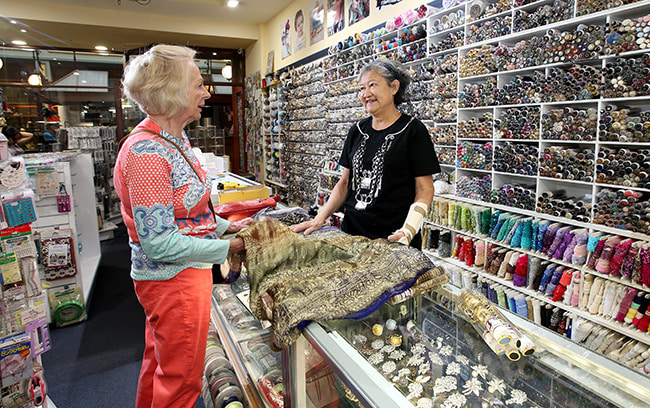Participation
In this section:
Key considerations
The State Government is committed to engaging with all South Australians.
There is much the public sector can do to provide leadership on ways of ensuring South Australian services and workforce reflects the diversity of our population.
Service design and review
The Government believes that including older people in the decisions that ultimately affect them results in better decisions and outcomes for both them and the South Australian community as a whole.
Now that baby boomers are amongst our older population, they are likely to increasingly express their expectations of being able to participate, influence and exert their rights.

Employment and volunteering
For many older people, contributing their time and skills to the community is essential for their wellbeing. For some, paid employment remains a priority. Yet the trends over recent years have been that people over 50 find gaining new employment increasingly challenging.
This has significant implications for this section of our population and for maintaining the broadest and deepest talent pools.

Actions to take
Promoting participation
- Whenever a new service is planned or an existing one reviewed, consider diverse ways for older people to be consulted or to participate (e.g. over the phone, in an informal setting, at community events).
- Consider the best ways to include a diverse range of older people and to address any barriers they may have as participants.
- It is important to engage and it is equally important to tell those you engage what you learnt and how you have responded.
- Some older people are not able to read or write in their first language. Plan to undertake at least some of your engagement verbally or using images.
- Continue to monitor and actively promote inclusion of older people in public and private sector employment.
- Provide flexibility around grand-parenting needs and travel. If someone is transitioning to retirement, suggest that volunteering could form part of their new work-life balance.
- Recognise excellence in employment practices and volunteering in publications and marketing materials.
- Recognise years of service publicly (e.g. media, website).
Participation in action
- Lead by example and consider age friendly workplace practices. Encourage mentoring and/or volunteering and allow workplace time for this.
- Organise members of your team from a CALD background to host a conversation in a community language.
- Nominate outstanding efforts in volunteering for relevant State Government awards (e.g. Joy Noble Medal, Volunteering Recognition Awards - SA Government provided).
- Develop various formats (written, verbal/conversational, digital) to allow for ongoing participation through feedback.
Tips & tricks
- Seek advice from Office for Ageing Well.
- Engage with Office for Ageing Well’s Feedback Network of over 3000 Seniors Card members to hear the voices of older people in the development and planning of projects and to inform research, design of products, services and policies.
- Conduct service design and user experience consultations or engagements at a time when most older people use your service and during free public transport hours.
- Build a question or two into existing forms or as part of the everyday service provision. Make sure you seek ‘age by decade’ in the data you collect.
- Provide a variety of platforms for participation, including phone line, focus groups, paper, online surveys and community events.
- Challenge language that is disrespectful.
- Challenge the culture of ageism by ensuring staff training promotes positive images of the diversity of older workers and older volunteers with language that is also positive.

